Politics
Pakistan, world powers slam Israel’s Doha strike as dangerous violation of sovereignty
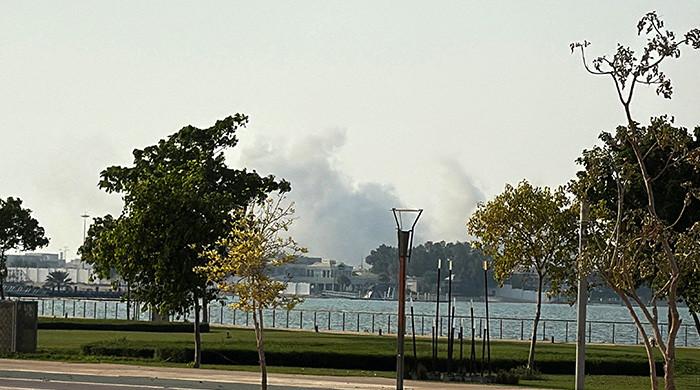
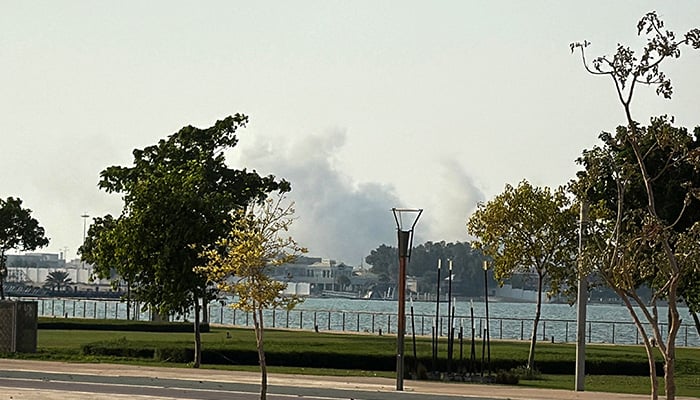
- Qatar condemns strike as reckless and unlawful.
- Saudi Arabia warns of dire regional consequences.
- Turkey says Israel pursuing expansionist politics.
Pakistan has strongly condemned Israel’s air strike in Doha targeting Hamas leaders, terming it a “most dangerous provocation” that threatens regional peace and stability.
Prime Minister Shehbaz Sharif, in a statement on X, said the attack was “unlawful and heinous”, as it endangered the lives of innocent civilians by striking a residential area in the Qatari capital.
“This act of aggression by Israel is totally unjustified, a brazen violation of the sovereignty and territorial integrity of Qatar, and constitutes a most dangerous provocation that could imperil regional peace and stability,” he said.
Expressing solidarity with the Qatari leadership, he added that Pakistan “stands firmly with the State of Qatar, as well as with the people of Palestine against Israel’s aggression”.
Foreign Minister Ishaq Dar also condemned the strike, calling it “reprehensible” and a blatant violation of international law. He stressed that Pakistan “reiterates its unwavering support for the people and the State of Qatar in these grave times”.
Israel confirmed it had carried out the attack as Prime Minister Benjamin Netanyahu said: “Israel initiated it, Israel conducted it, and Israel takes full responsibility.”
Qatar, where Hamas has long maintained its political base, strongly condemned the “cowardly” strike, with its foreign ministry declaring it a “blatant violation of international laws and norms” that posed a serious threat to the safety of Qataris and residents.
Doha Spokesperson Majed Al Ansari said on X that Qatar “will not tolerate this reckless Israeli behaviour”.
The international community also voiced alarm. UN Secretary-General Antonio Guterres termed the attack a “flagrant violation of sovereignty”, urging all parties to work towards a permanent ceasefire.
Saudi Arabia condemns and denounces in the strongest terms the brutal Israeli aggression and flagrant violation of the sovereignty of the sisterly State of Qatar.
The foreign ministry statement warned of “the dire consequences resulting from the Israeli occupation’s persistence in its criminal violations and its blatant violation of the principles of international law and all international norms.”
Pope Leo described the situation as “very serious”, while Saudi Arabia denounced the strike as “brutal aggression” with dire consequences for the region.
Lebanese President Joseph Aoun said it was part of Israel’s “series of aggressions” against regional stability. Iran labelled the strike “dangerous” and a breach of international law, while the UAE condemned it as a “cowardly” escalation and pledged solidarity with Qatar.
Turkiye said targeting Hamas’s delegation during ongoing ceasefire talks proved Israel had no intention of peace but was instead pursuing “expansionist politics” and using “terrorism as state policy”.
Iran’s Foreign Ministry spokesperson said Israel’s attack on Hamas officials in Qatar is “dangerous” and a “violation of international law”, Iranian media reported.
Jordan and the United Arab Emirates also condemned the Israeli strikes in Doha.
Politics
Iran’s government offers dialogue as protests spread to universities
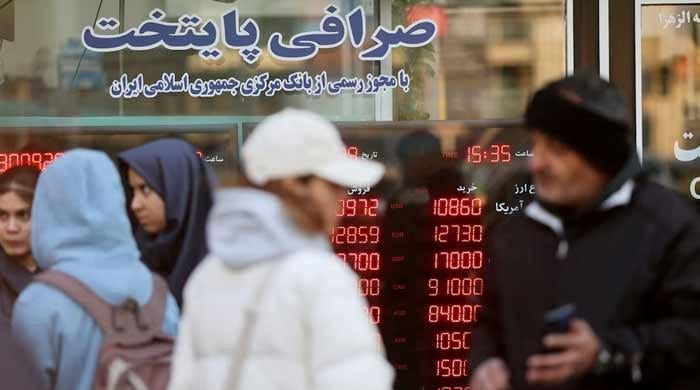
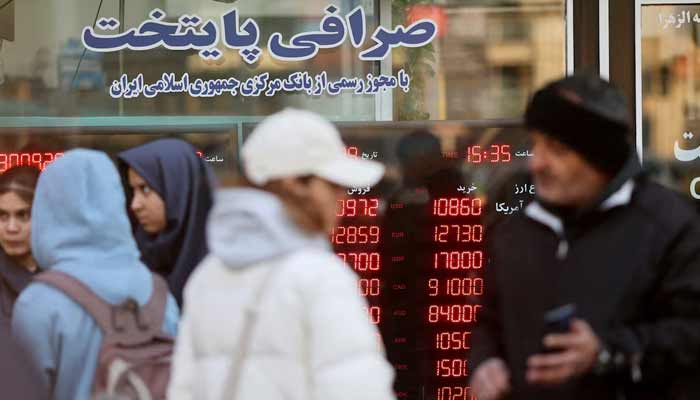
Protests over Iran’s soaring cost of living spread to several universities on Tuesday, with students joining shopkeepers and bazaar merchants, semi-official media reported, as the government offered dialogue with demonstrators.
Iran’s rial currency has lost nearly half its value against the dollar in 2025, with inflation reaching 42.5% in December in a country where unrest has repeatedly flared in recent years and which is facing US sanctions and threats of Israeli strikes.
President Masoud Pezeshkian said in a social media post late on Monday that he had asked the interior minister to listen to “legitimate demands” of protesters.
Government spokesperson Fatemeh Mohajerani said a dialogue mechanism would be set up and include talks with protest leaders.
“We officially recognise the protests […] We hear their voices and we know that this originates from natural pressure arising from the pressure on people’s livelihoods,” she said on Tuesday in comments carried by state media.
Protesters March streets in Tehran
Video of protests, verified by Reuters as taking place in Tehran, showed scores of people marching along a street chanting “Rest in peace Reza Shah”, a reference to the founder of the royal dynasty ousted in the 1979 Islamic revolution.
Footage aired on Iranian state television on Monday showed people gathered in central Tehran chanting slogans.
The semi-official Fars News Agency reported that hundreds of students held protests on Tuesday at four universities in Tehran.
On social media, some Iranians voiced support for the protests with one, Soroosh Dadkhah, saying high prices and corruption had led people “to the point of explosion” and another, Masoud Ghasemi, warning of protests spreading across the country.
Iranian authorities have quashed previous bouts of unrest that have flared over issues ranging from the economy to drought, women’s rights and political freedoms, with violent security actions and widespread arrests.
The government has not said what form dialogue will take with the leaders of this week’s demonstrations, the first major protests since Israeli and US strikes on Iran in June, which prompted widespread expressions of patriotic solidarity.
Pezeshkian said in a meeting with trade unions and market activists on Tuesday that the government will do its best to resolve their issues and address their worries, according to state media.
Sanctions hammer economy
Iran’s economy has been in deep trouble for years after US sanctions were reimposed in 2018 when US President Donald Trump ended an international deal over the country’s nuclear programme during his first term in office.
United Nations sanctions on the country were reimposed in September and Reuters reported in October that several high-level meetings had been held on how to avert economic collapse, circumvent sanctions and manage public anger.
Economic disparities between ordinary Iranians and the clerical and security elite, along with economic mismanagement and state corruption — reported even by state media — have fanned discontent at a time when inflation is pushing many prices beyond the means of most people.
The currency slid to 1.4 million rials to the US dollar on Tuesday according to private exchange platforms, a record low after starting the year at 817,500 rials to the dollar.
Monthly annualised inflation figures have not dropped below 36.4% since the Iranian new year started in late March according to official figures.
On Monday the central bank chief resigned with Iranian media saying the government’s recent economic liberalisation policies had put pressure on the open-rate rial market, where ordinary Iranians buy foreign currency. Most businesses use official currency exchanges where the rial price is supported.
In 2022, Iran was buffeted by protests across the country over price hikes, including for bread, a major staple.
Over the same period and into 2023, the country’s clerical rulers faced the boldest unrest in years touched off by the death of a young Iranian Kurdish woman, Mahsa Amini, in the custody of the morality police, who enforce strict dress codes.
Iran remains under intense international pressure, with Trump saying on Monday that he might back another round of Israeli airstrikes if Tehran resumed work on ballistic missiles or any nuclear weapons programme.
The US and Israel carried out 12 days of airstrikes on Iran’s military and its nuclear installations in June aimed at stopping what they believe were efforts to develop the means to build an atomic weapon.
Iran says its nuclear energy programme is entirely peaceful and that it has not tried to build a nuclear bomb.
Politics
Dubai sets historic record as licence plate auction crosses AED1bn


DUBAI: Dubai’s Roads and Transport Authority (RTA) has set a new record after selling luxury vehicle licence plates worth more than AED1.09 billion, highlighting the Emirate’s continued appetite for ultra-premium motoring status symbols.
The sales were recorded at the RTA’s 120th open licence plate auction, where 90 special plates featuring two- to five-digit combinations were offered for bidding.
The total proceeds amounted to over AED1.09 billion, equivalent to roughly Rs8.28 billion, making it the largest licence plate auction ever held in Dubai.
The most expensive plate at the auction was BB12, which sold for AED9.66 million (about Rs734 million).
Another high-value plate, AA25, fetched more than AED8 million, equal to approximately Rs630 million.
Among other premium sales, BB30 was sold for AED6.74 million (around Rs512 million), while CC100 went for AED4.21 million, or nearly Rs319 million.
Dubai licence plate auctions regularly attract wealthy collectors and car enthusiasts, with low-digit and distinctive combinations often viewed as symbols of prestige and investment assets alongside luxury vehicles.
Politics
UAE announces forces’ withdrawal from Yemen amid tension with Saudi Arabia
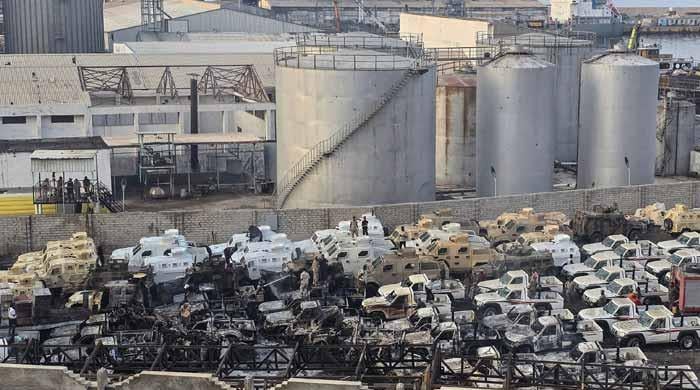
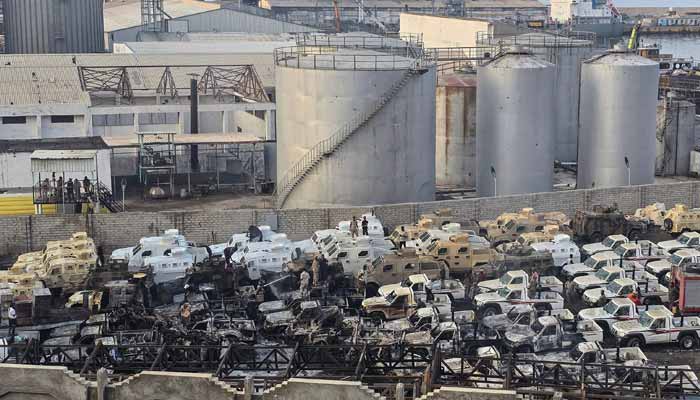
The United Arab Emirates’ defence ministry on Tuesday announced that it has ended the mission of its counterterrorism units in Yemen voluntarily, state news agency WAM reported.
It said the decision came after a comprehensive assessment following recent developments.
The defence ministry also shared its statement in Arabic on X, saying the decision was made after considering recent developments and potential risks to the safety and effectiveness of its counterterrorism missions.
The announcement comes after a Saudi-led coalition carried out an airstrike on the southern Yemeni port of Mukalla, striking what it described as a foreign military support to UAE-backed southern separatists.
Saudi Arabia also backed a call for UAE forces to leave Yemen within 24 hours.
The UAE was a member of the Saudi-led coalition battling the Houthi movement in Yemen from 2015. In 2019 it started a drawdown of its troops in the country but remained committed to the Saudi-backed internationally recognised government.
The Southern Transitional Council (STC) later decided to seek self-rule in the south and this month advanced in a sudden offensive against Saudi-supported Yemeni government troops.
The advance broke years of stalemate, with the STC claiming broad control of the south. Saudi Arabia had warned the STC against military moves in the eastern border province of Hadramout and sought the withdrawal of its forces.
This is a developing story and is being updated with further details.
-

 Sports4 days ago
Sports4 days agoBrooks Koepka should face penalty if he rejoins PGA Tour, golf pundit says
-

 Sports1 week ago
Sports1 week agoPatriots vs. Ravens (Dec 21, 2025) Live Score – ESPN
-

 Business4 days ago
Business4 days agoGovt registers 144olive startups | The Express Tribune
-

 Politics1 week ago
Politics1 week agoMoscow car blast kills Russian general hours after US talks
-

 Politics1 week ago
Politics1 week ago2025 marks decisive reset in Pakistan-US ties: Washington Times
-
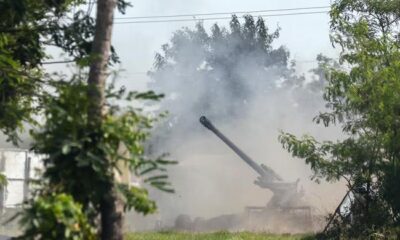
 Politics4 days ago
Politics4 days agoThailand, Cambodia agree to ‘immediate’ ceasefire: joint statement
-

 Business1 week ago
Business1 week agoNeptune Logitek Shares List At 26% Discount, IPO Investors Suffer Nearly Rs 30,000 Losses
-

 Entertainment1 week ago
Entertainment1 week agoTimothée Chalamet in question for ‘Marty Supreme’ press tour attitude






